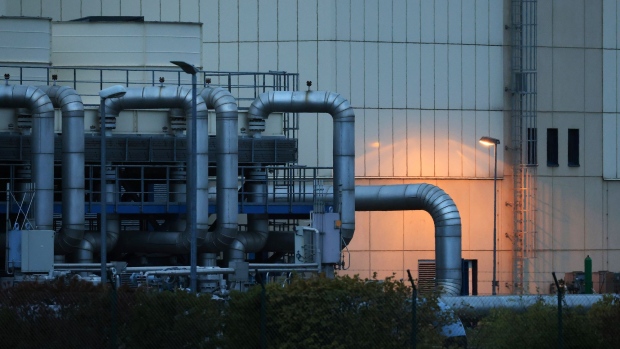Natural gas in Europe declined after leaders came together to back urgent measures, including a price cap, to contain the energy crisis that’s engulfed the economy, according to Bloomberg.
Benchmark futures declined as much as 4.8% on Friday and headed for a third straight weekly loss. The politicians asked the European Commission to propose a “temporary dynamic price corridor,” and said they would pursue a temporary framework to cap the price of gas in electricity generation. They will also take steps to avoid extreme price spikes and use the EU’s joint purchasing power in negotiations with sellers.
“We sent also a clear signal to the market,” European Council President Charles Michel said. “I’m confident that there will be an effect very soon.”
The European Union presented the united front after German Chancellor Olaf Scholz yielded to pressure from other member states for a gas price cap. He had warned that limiting prices could endanger supply at a time when the region needs all the flows it can get. But countries including France, Italy and Poland had been pushing hard for a cap as dwindling Russian supplies bring the threat of shortages and blackouts.
EU leaders will meet Friday for the second day of their summit, with economic issues on the agenda. The bloc’s energy ministers will meet next week to continue trying to hash out the details of the various plans. French President Emmanuel Macron said the aim is to have explicit mechanisms laid out in the next two to three weeks.
Gas markets have responded to every step in the negotiations to rein Europe’s energy crisis, which escalated after Russia’s invasion of Ukraine. Europe started the winter heating season well-supplied, with almost full reservoirs and strong LNG flows. These have helped push gas prices 60% lower from their August peak.
Dutch front-month gas, the European benchmark, was 3.3% lower at €123 per megawatt-hour at 8:46 a.m in Amsterdam. It’s 13% lower for the week.
Buyers in Asia are preparing for the winter by stepping up purchases of liquefied natural gas, which Europe has heavily depended on to replace Russian fuel.


